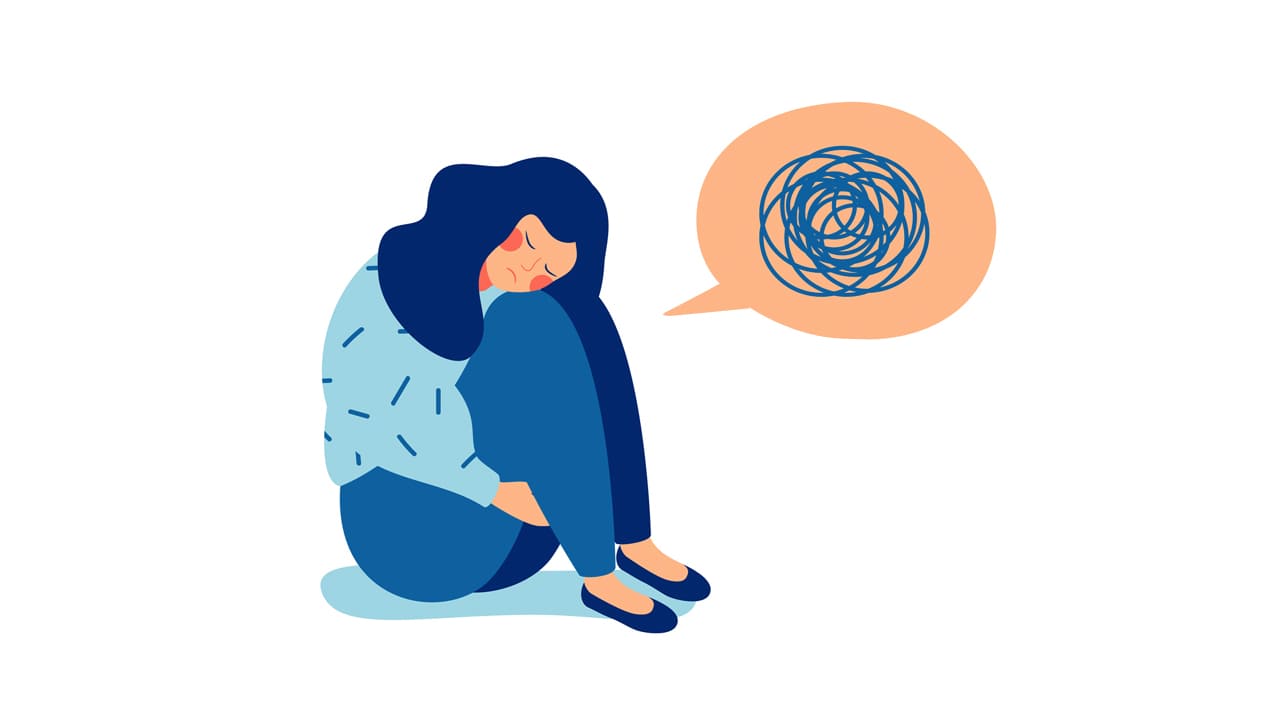How do You Know if You Have Anxiety?

Anxiety is a condition that manifests differently in each person. Some people experience panic attacks where they can’t breathe, while other people feel impending doom. They have intrusive thoughts or are constant worrying. Anxiety isn’t always straightforward. You might suspect you have it but aren’t sure. How do you know if you have anxiety? It’s crucial to note that the condition looks different in each person. Here are some signs that you may be suffering from anxiety.
You can’t stop worrying
If you find that your mind is constantly worrying about something, that could be a sign of anxiety. It’s natural to worry about particular issues in your life. But when you can’t turn your brain off and you have difficulty functioning during the day because of these pervasive disturbing thoughts, that could be anxiety. Sometimes you can’t stop thinking about the worst-case scenario. You’re envisioning terrible catastrophic events happening. Instead of worrying, you can take a proactive step. It can help to write down your worries. You may notice some themes if you pay attention to your thoughts. Constant worrying is not good for your mental health and your physical well-being. It’s crucial to be mindful of the signs of worrying and see a therapist if need be. Another thing that can help with rumination is mindfulness. Let the thoughts be there, but don’t try to change them. You can mindfully exist with them.
Panic attacks
Some people struggle with panic attacks and don’t even know what they are. A panic attack is characterized by a racing heart, sweating, shaking, and imminent fear that something terrible is going to happen. Typically, panic attacks come out of nowhere. They happen out of the blue. All of a sudden, a person feels like they’re dying. The physical and mental symptoms of a panic attack are uncomfortable and downright scary at times. Panic attacks can cause difficulty dealing with day-to-day life tasks. They can also take a toll on your physical health. It’s essential to get to the source of the anxiety attack, so you know what your triggers are and how to cope with them. You could benefit from the help of a mental health professional who can help you determine what those triggers are.
Irritability
Sometimes anxiety can make a person irritable. Your mind is working in overdrive, which can cause you to feel stressed. You find that you’re so preoccupied with your worries that you are snapping at your loved ones. Irritability and lack of patience could be due to an anxiety disorder. If you find that your temper is short and you are preoccupied with worries, that’s not something to brush to the side. You need to be aware of your irritable nature and discuss it with a mental health professional. It could be anxiety or a symptom of another mental health condition such as depression.
Insomnia
When you have trouble sleeping, that could be a symptom of anxiety. It’s exhausting to be up at night worrying. If you’re having difficulty turning your brain off at night, don’t ignore these symptoms. When you find that you’re obsessing about things that happened during the day, or events that transpired years ago, this could be a symptom of chronic anxiety. It’s something that you can address in therapy. Many people with an anxiety disorder struggle with insomnia. They can’t seem to stop obsessing over what’s bothering them. These are issues that they can discuss with a therapist. Pervasive worrying is something that can take over, and if you don’t get enough rest, it will affect you the next day. Don’t ignore sleep issues. Make sure to talk with a licensed therapist about them.
Getting help for anxiety
If any of the symptoms above resonate with you, you could be experiencing an anxiety disorder. You can get help for your condition. It’s also essential to note that there’s no shame in having anxiety. You didn’t cause yourself to feel anxious. Remember that many people cope with anxiety, and you are not alone. You may worry that your anxiety will push people away. You can talk to a mental health professional about these issues. Whether you see somebody online or in your local neighborhood, therapy can help. You can read about anxiety on Mind Diagnostics.
Marie Miguel Biography
Marie Miguel has been a writing and research expert for nearly a decade, covering a variety of health-related topics. Currently, she is contributing to the expansion and growth of a free online mental health resource with Mind-Diagnostics.org. With an interest and dedication to addressing stigmas associated with mental health, she continues to specifically target subjects related to anxiety and depression.
